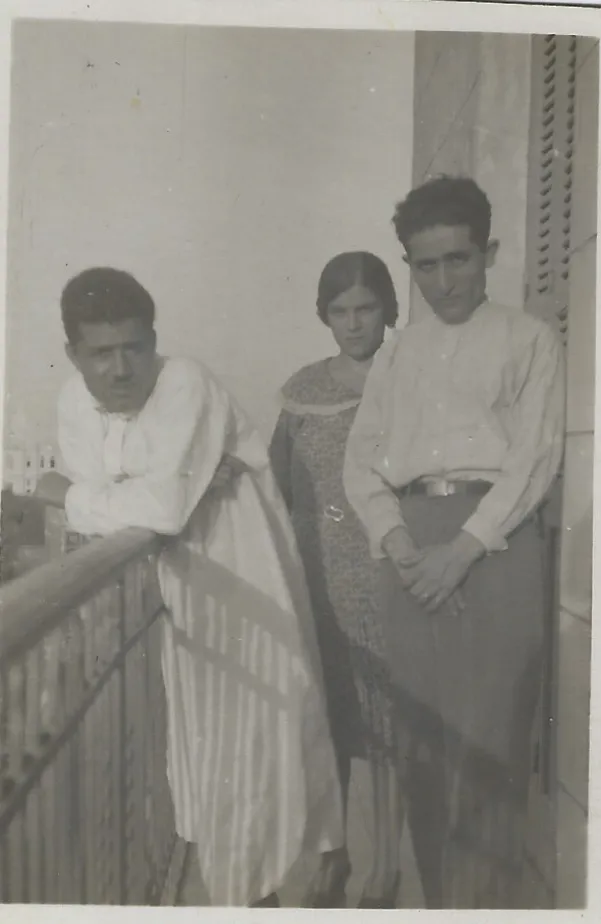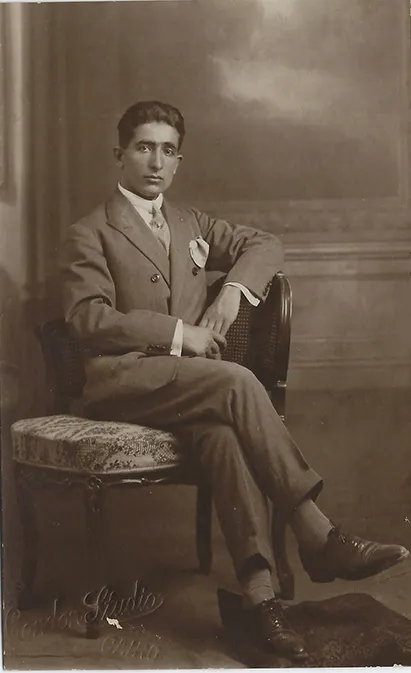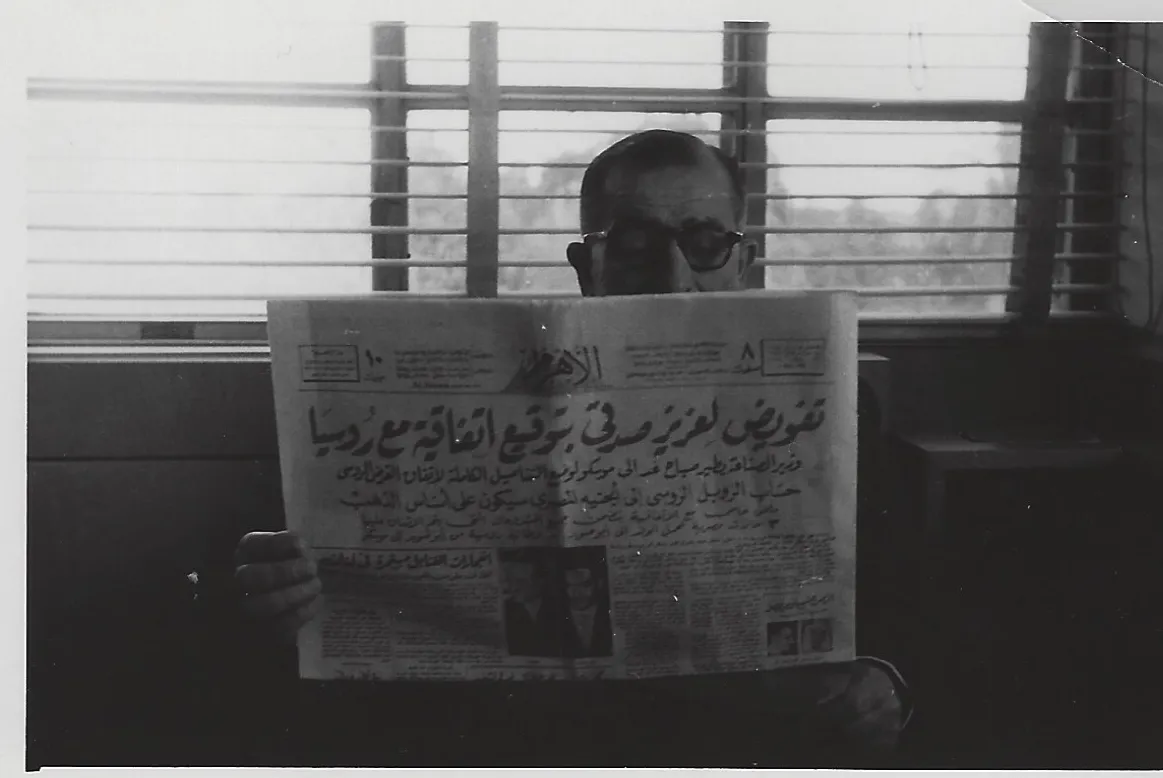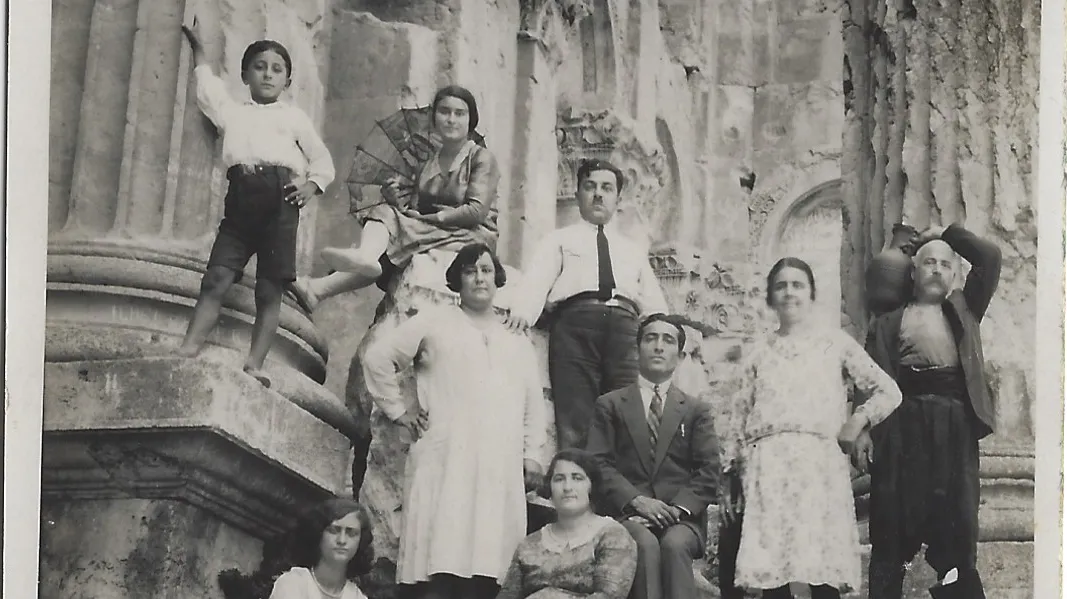April 24th, 1915 is a date that many in the Armenian community will never forget. For the younger generation, they know it’s a date of great importance for their parents and grandparents. For the older generation, it’s a date where their lives changed forever. Many survivors are still alive to recount their experience when the Ottoman government carried out their systematic extermination of 1.5 million Armenians.

Samuel Kondourajian (right) with friends in Cairo, Egypt. Photo courtesy of the Kondourajian family
The Armenian Genocide was the ruthless slaughter of millions of Armenians at the hands of Turkish officials in the Ottoman Empire. Turkish authorities rounded up, arrested, and deported 235 to 270 Armenian intellectuals and community leaders from Constantinople (now Istanbul) to the region of Angora (Ankara), where the majority were eventually murdered. After that, ordinary Armenian citizens were targeted. They were forcibly removed from their country and homes, and sent on death marches through the Syrian desert without food or water, and in some instances, without clothes.
Before World War I, there were 2 million Armenians in the Ottoman Empire. By 1922, there were fewer than 400,000.

Samuel Kondourajian at London Photographic Studio in Cairo, Egypt around the time he first arrived in the 1930's. Photo courtesy of the Kondourajian family
For decades, American Armenian families got together as a community, protested and fought for the recognition, justice, and commemoration of their ancestors who fell victim to the Armenian Genocide.
I am a part of one of those families. Growing up, I heard stories about how my grandfather escaped a horrible thing. My paternal grandfather and his family were from Aintab (today Gaziantep, Turkey). When he was a child, Turkish forces moved into his village, rounding up any Armenians living there. His father and mother were beheaded. His sister, presumably raped and murdered, was thrown into a nearby ditch. After fleeing his village, he found a way to escape the country. He was smuggled out by a Turkish pasha and found his way, presumably on foot, to Deir ez-Zor, Syria and then to India by way of Mosul, Iraq. Later on, after he had been cared for by American missionaries in India, he made the trek back to Armenia and then to Lebanon before settling in Egypt where he found relatives and where his three children would later be born.

Samuel reading an Arabic newspaper in Egypt . Like many survivors of the Genocide, Samuel had to adapt to new cultures, languages, and traditions in the country where they resettled. Cross culture and traditions were a result of the Armenian diaspora. Photo courtesy of the Kondourajian family
The Turkish government adamantly denies the Armenian Genocide, the uprooting, dispossession and destruction of an entire nation during World War I, despite constant pressure and push-back from social justice advocates and Armenians all over the world. It is illegal in Turkey to talk about what happened to Armenians during that era.
But today was a landmark day for generations of Armenians. Lawmakers in the House of Representatives brought to the floor a long-stalled and controversial bill, H.RES. 296, introduced in April by Rep. Adam Schiff (D-Calif.), vice chair of the Congressional Armenian Caucus. This comes on the heels of already tense U.S.-Turkey relations with Turkish President Recep Tayyip Erdoğan and Turkey carrying out military attacks against Syrian Kurdish forces after the Trump administration pulled troops from the area earlier this month. The bill passed 405-11.
The bill emphasizes the position of the House that U.S. policy will "(1) commemorate the Armenian Genocide through official recognition and remembrance; (2) reject efforts to enlist, engage, or otherwise associate the United States Government with denial of the Armenian Genocide or any other genocide; and (3) encourage education and public understanding of the facts of the Armenian Genocide, including the United States’ role in the humanitarian relief effort, and the relevance of the Armenian Genocide to modern-day crimes against humanity."
Resolutions like H.RES. 296 have been repeatedly introduced and debated over the years but have never reached the House floor. Previous administrations prevented Congress from allowing its advancement and have argued that it could damage the relationship with Turkey. Additionally, the Turkish government in the past has spent millions of dollars on lobbying firms working to crush former proposed bills. H.RES. 296 brings that uncomfortable era to a close.
The Trump administration has yet to comment on the landmark decision. In recent years, both Republican and Democratic administrations have avoided the Armenian Genocide debate. Turkey is a strategic military ally in regards to U.S. policy in the Middle East and a NATO member that stores many U.S. nuclear weapons.
Los Angeles is home to the largest Armenian community outside of Armenia. Each year on April 24th, thousands take to the streets and march for a day of remembrance and recognition.
Reactions from D.C.
Today I managed debate for @RulesDemocrats as we brought to the floor H.Res. 296, a resolution recognizing and memorializing the #ArmenianGenocide. Here are my opening remarks: pic.twitter.com/Z4WXshVDyx
— Rep. Jim McGovern (@RepMcGovern) October 29, 2019

